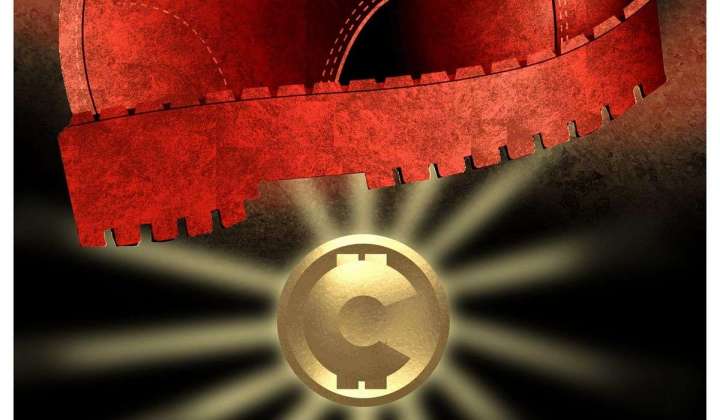Chinese Communist crypto policy in America?

OPINION:
The very idea of an innovation as disruptive as cryptocurrency is unsettling to some, both in public policy circles and those in the financial community, who are wary of new competition beyond their control. A few have gone as far as suggesting that we should follow the example of the Chinese Communist Party, which banned cryptocurrency altogether in May 2021.
A traditional centralized monetary system relies upon a central authority — typically a government or central bank — to control the various aspects of that system, including the printing or minting of physical currency and coordinating with financial institutions to run, record and audit transactions. In stark contrast, bitcoin, the most recognized name among cryptocurrencies, is among those featuring a decentralized monetary structure. Under its decentralized model, no central authority is required, and banks are eliminated from the picture altogether. That last aspect alone is enough to send shivers down the spines of even the most comfortable of banking executives.
Bitcoin’s use of open-source software allows the code to be maintained by a consensus of its users. Modifications and improvements can be made if a sufficient number of users agree, and importantly, any changes would be transparent. That’s another differentiator with a centralized system where authorities can dictate changes, potentially shrouded in secrecy.
Bitcoin and other cryptocurrencies are not owned or controlled by any one firm or individual, and their release to the public has opened up banking to the unbanked. About 5.9 million U.S. households (4.5%) are unbanked and shut out of the economy.
Decentralized cryptocurrencies can also help safeguard against abuses found within centralized monetary systems, such as the manipulation of exchange rates and creating inflation by printing more money as a means of increasing government revenue.
Instead of allowing informed consumers to make their own decisions, some detractors insist that cryptocurrencies represent the Wild West and that we should follow the lead of the Chinese Communist Party, which decided it could make better investment decisions than its citizens.
The CCP’s antipathy toward cryptocurrency is not that complicated. A decentralized monetary system blocks governments from achieving political goals by manipulating the money supply and the exchange rate. By their nature, no authoritarian regime willingly cedes its lock-grip control over the masses. A cryptocurrency structured along the lines of bitcoin would also make it easier for Chinese citizens to transfer financial assets outside of China, which party leaders perceive as a threat to the regime.
In addition, the CCP rolled out its own digital yuan last year, and it doesn’t want even a whiff of competition. No one but the state-owned Bank of China can create a new digital yuan. The bank even considered imposing limits on the amount of digital yuan people could obtain at one time for the purpose of controlling circulation. Indeed, control over the centralized digital currency and the ability to track citizens’ spending hands Chinese President Xi Jinping yet another tool to tighten his totalitarian rule.
In many ways, the motivation of those who would like to ban cryptocurrency in the United States is not too dissimilar from that of their Beijing counterparts. Using the power of government to prohibit blockchain currencies, rather than protecting a corrupt regime, would be used here to shield mega-banks from competition. And neither scenario is ground in sound economic policy.
Cryptocurrencies, like nearly all investments, are not without risk. But decisions over how and when to invest in crypto should be left to the individual, not dictated by government.
Innovative cryptocurrencies such as bitcoin are reducing transaction costs, helping people fight government censorship, and, most importantly, generating prosperity through investment. Along the way, they may disrupt the established order represented by major banking interests. Still, financial freedom rather than Chinese communism has been the model that has guaranteed individual liberties while making America prosperous.
• David McIntosh is president of the Club for Growth.






